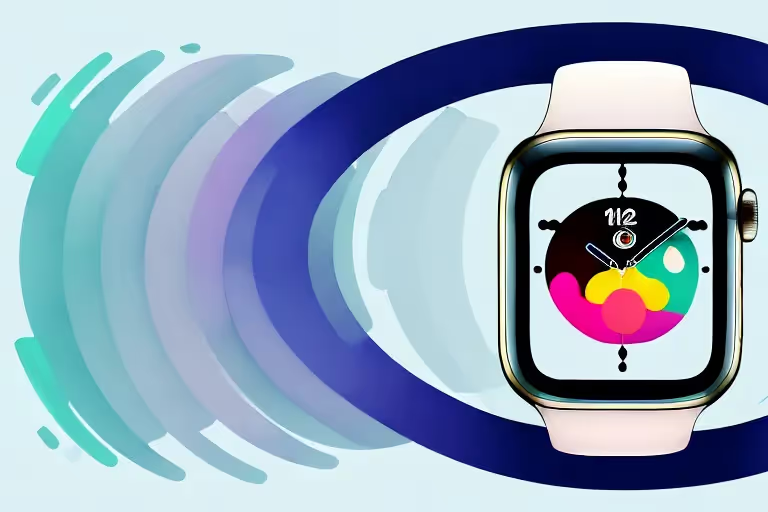Lucid dreaming is an extraordinary experience that allows us to explore the depths of our subconscious mind and unleash our wildest dreams. The idea of being fully aware and in control within the realm of our dreams is an enticing prospect for many. However, there may come a time when we wish to return to the waking world. In this article, we will delve into the fascinating world of lucid dreaming and explore techniques for awakening from these captivating dreamscapes.
Understanding Lucid Dreams
Before we can dive into the techniques, let's first understand what lucid dreaming truly is. A lucid dream is a state in which the dreamer becomes aware that they are dreaming. This awareness brings with it an extraordinary sense of control, as if we are the directors of our own magical movie. But what causes lucid dreaming? The science behind this phenomenon is still being unravelled, but researchers believe that it is a result of the brain's activity during the rapid eye movement (REM) stage of sleep.
What is a Lucid Dream?
A lucid dream occurs when we become conscious within the dream while it unfolds. It's like discovering a secret doorway to an alternate reality where we can unlock our true potential. Suddenly, anything becomes possible, and we can shape the dream according to our desires. It is a playground for our imagination, a canvas for us to paint with the colors of our choosing.
The Science Behind Lucid Dreaming
Researchers have been intrigued by the science behind lucid dreaming for decades. While there is still much to learn, studies suggest that lucid dreaming is connected to increased activity in the prefrontal cortex, the part of the brain that controls self-awareness and decision-making. This heightened brain activity during sleep allows us to recognize and participate consciously in the dream world.
Lucid dreaming has fascinated scientists, psychologists, and philosophers alike. It offers a unique window into the workings of the human mind and the nature of consciousness. Some researchers believe that lucid dreaming may hold the key to understanding the boundaries between dreams and reality, and even the potential for enhancing creativity and problem-solving skills.
One theory suggests that lucid dreaming is a skill that can be developed through practice and training. Just like any other skill, such as playing a musical instrument or learning a new language, lucid dreaming requires dedication and perseverance. Techniques such as reality checks, dream journaling, and meditation have been found to be effective in increasing the frequency of lucid dreams.
Lucid dreaming also has its practical applications. For example, it can be used as a tool for overcoming nightmares and recurring dreams. By becoming aware that we are dreaming, we can take control of the dream narrative and transform it into a more positive and empowering experience. Lucid dreaming can also be used for creative purposes, allowing artists, writers, and inventors to tap into their subconscious mind and explore new ideas and concepts.
Furthermore, lucid dreaming has been studied in the context of sleep disorders and mental health. It has been found that individuals who experience frequent nightmares or suffer from conditions such as post-traumatic stress disorder (PTSD) may benefit from learning how to have lucid dreams. By gaining control over their dreams, they can confront and overcome their fears in a safe and controlled environment.
In conclusion, lucid dreaming is a fascinating phenomenon that offers a glimpse into the untapped potential of the human mind. It is a state of consciousness where dreams and reality merge, allowing us to explore and shape our inner worlds. Whether for personal growth, creative expression, or therapeutic purposes, lucid dreaming holds immense promise for those who are willing to embark on this extraordinary journey.
The Benefits and Risks of Lucid Dreaming
Lucid dreaming is not just a whimsical fantasy; it holds several potential benefits for those who actively engage in it. Let's explore some of the advantages and potential drawbacks of lucid dreaming.
Advantages of Lucid Dreaming
One of the significant benefits of lucid dreaming is the ability to tap into our creativity and problem-solving skills. Within the realm of our dreams, we can experiment with different scenarios and explore solutions to real-life challenges. Lucid dreaming also offers a space for self-discovery and personal growth. By exploring our dream world, we can gain insights into our subconscious mind and better understand ourselves.
Furthermore, lucid dreaming provides a platform for practicing skills and improving performance in various areas of life. Athletes can visualize and perfect their techniques, musicians can compose symphonies in their dreams, and artists can create masterpieces on dream canvases. The possibilities are limited only by our imagination.
Potential Drawbacks of Lucid Dreaming
While lucid dreaming can be a kaleidoscope of awe-inspiring experiences, it's important to be aware of potential drawbacks. In some instances, the excitement of lucid dreaming can lead to difficulties in maintaining a regular sleep schedule. It's crucial to find a balance between the dream world and the waking world to ensure optimal rest and overall well-being. Additionally, for those prone to anxiety or fear, lucid dreaming may occasionally lead to unsettling or nightmarish experiences. It's essential to approach lucid dreaming with a sense of caution and self-care.
Techniques for Inducing Lucid Dreams
Now that we comprehend the concept of lucid dreaming and its potential benefits and risks, let's explore various techniques for inducing these extraordinary dream states.
Reality Testing
Reality testing is a simple yet effective technique for recognizing when we are in a dream. Throughout the day, consciously ask yourself, "Am I dreaming?" and perform reality checks, such as pinching your nose shut and attempting to breathe through it. By making this a habit, you will carry it into your dreams, where you will realize that you can indeed breathe, signaling that you are in a dream.
Wake Back to Bed (WBTB)
The Wake Back to Bed technique involves setting an alarm to wake yourself up after a few hours of sleep. Once awake, engage in a relaxing activity for a short period before returning to bed with the intention of entering a lucid dream. This technique capitalizes on the natural tendency to have more vivid dreams during the later stages of sleep.
Mnemonic Induction of Lucid Dreams (MILD)
The Mnemonic Induction of Lucid Dreams technique combines affirmation and visualization to increase the likelihood of having a lucid dream. Before falling asleep, repeat a phrase like "I will realize I'm dreaming" and visualize yourself becoming aware within a dream. This practice strengthens the intention and increases the chances of experiencing a lucid dream.
How to Recognize You're in a Lucid Dream
Once you have successfully induced a lucid dream, it's vital to be able to distinguish this state from regular dreaming. By honing your ability to recognize lucidity, you can fully harness the dream's potential.
Dream Signs and Reality Checks
Dream signs are recurring themes or elements that frequently appear in your dreams. By keeping a dream journal and identifying these patterns, you can train yourself to recognize when you are in a dream. Performing reality checks, such as attempting to read text or looking at a digital watch, can further confirm whether you are in a lucid dream or the waking reality.
Increased Self-Awareness in Dreams
Lucid dreaming brings a heightened sense of self-awareness that enables you to notice subtle differences in your surroundings and experiences. Paying close attention to details and regularly reflecting on your dreams can help sharpen your ability to recognize lucidity while dreaming.
Strategies to Wake Up From a Lucid Dream
While lucid dreaming can be exhilarating, there may be instances when you wish to wake up and return to reality. Here are some strategies to help you transition back to the waking world:
Intentionally Altering the Dream
One way to wake up from a lucid dream is to focus your intent on changing the dream's content or environment. By asserting your control over the dream scene, you can influence it in a way that gently brings you out of the dream state and back into wakefulness.
Using Physical Movements
Engaging in physical movements within the dream can also aid in awakening. Try to move your dream body vigorously, jump up and down, or spin around. These actions can create a sense of disorientation and help transition from the dream to the waking state.
Focusing on Waking Up
As with any intention, focusing on waking up can manifest the desired outcome. Mentally affirm your intention to wake up while reminding yourself that the dream is temporary. By holding this intention strongly in your mind, you will begin to emerge from the depths of the dream and embrace the waking world once more.
Now that you're equipped with an arsenal of techniques to awaken from lucid dreams, remember to approach each dream with a sense of exploration and wonder. Lucid dreaming offers a gateway to untapped realms of consciousness, providing us with invaluable insights into ourselves and the world around us. Embrace this mystical journey, and may your dreams become a canvas where your imagination can flourish.
Unlock the power of your dreams with the Aura Health App. This innovative tool provides guided meditations and techniques to enhance your dream experiences. Whether you wish to lucid dream or simply improve the quality of your sleep, the Aura Health App is your ally on this extraordinary journey of self-discovery. Begin your adventure today and awaken to the limitless possibilities within your dreamscape.
Aura is Your All In One App for Meditation, Mindfulness Wellbeing
Find peace every day with one app for your whole well-being. There is no one-size-fits-all solution to mental well-being. Aura is the first all-in-one wellness app that learns how to best help you. Discover an endless library of expert-created tracks for your well-being, all taught by the world’s best coaches, therapists, and storytellers. With Aura's personalized recommendations, you can find peace every morning, day and night.



.webp)






.avif)

%20(1).avif)


.avif)
.avif)
.webp)


.avif)


















































































































.avif)

















.svg)









